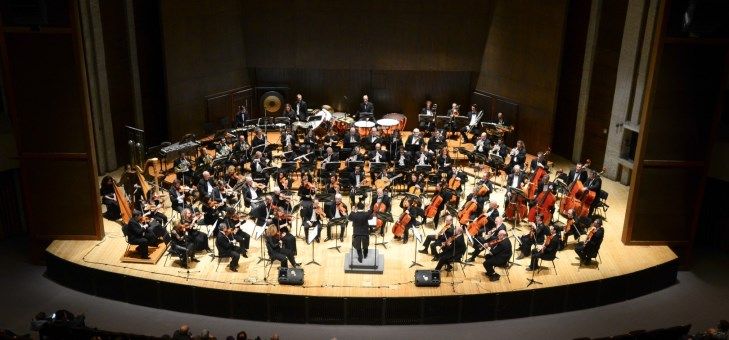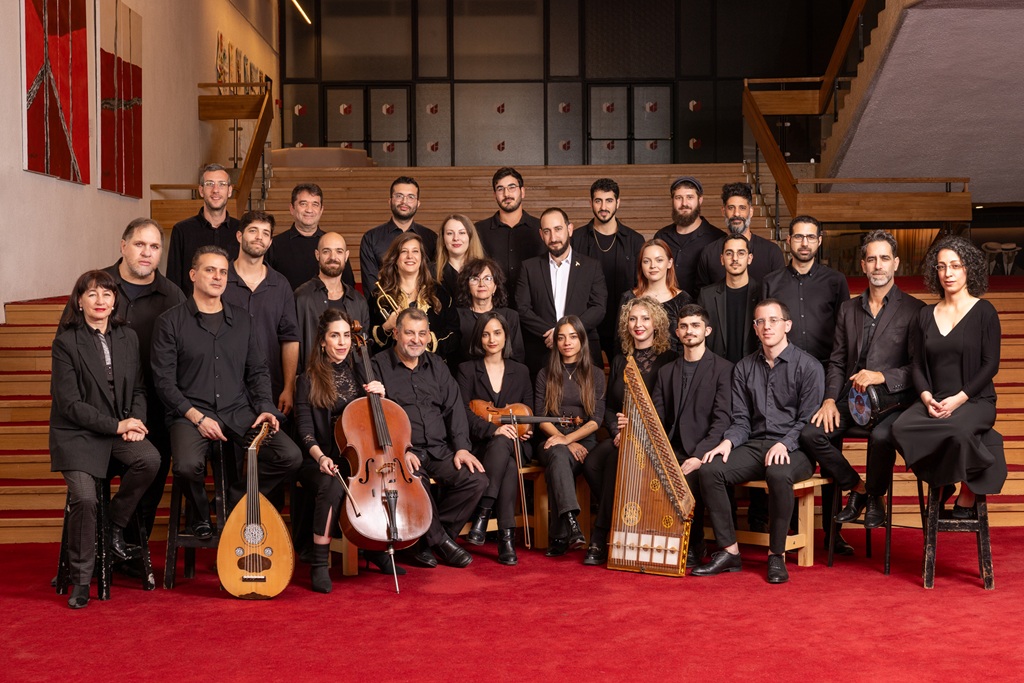Cultural institutions at the Jerusalem Theatre
The Jerusalem Theatre is the permanent home of key cultural institutions: the Jerusalem Symphony Orchestra, the Jerusalem Orchestra East West, the Mikro Theatre and the Israel Festival.
The Jerusalem Symphony Orchestra, IBA
Founded in the 1940s as the national radio orchestra, it was known as the Voice of Israel Orchestra. In the 1970s, the orchestra was expanded and became the Jerusalem Symphony Orchestra, IBA (Israel Broadcasting Authority). As a radio orchestra, most of its concerts are recorded and broadcast on the Voice of Music from the orchestra’s home, the Henry Crown Hall in Jerusalem. Since its founding, the orchestra has had seven music directors: Mendi Rodan, Lukas Foss, Gary Bertini, Lawrence Foster, David Shillon, Leon Botstein and Frédéric Chaslin.
The orchestra’s repertoire broadly combines masterpieces of past and present, ranging from the baroque and classical periods, the great works of the romantic period, to the most outstanding contemporary works, including ones premiered in Israel. Simultaneously, the orchestra fosters original works by Israeli composers, both inviting and performing them.
The orchestra performs over 50 concerts annually in the theatre in several series, including a series of concerts for children and young people. Occasional open rehearsals are also held.
 Symphony Orchestra, photo: David Vinocour
Symphony Orchestra, photo: David Vinocour
The Jerusalem Orchestra East & West
Musical director and chief conductor: Tom Cohen
The orchestra was founded in Ashdod in 2009 and established its home at the Jerusalem Theatre in 2016. As well as preserving Andalusian classical music and heritage, the orchestra includes a quality art repertoire of classical Mediterranean music, preserved and developed along the shores of the Mediterranean Sea.
The orchestra offers a truly multicultural experience on a single stage: arrangements of classical music alongside a powerful ensemble of musicians, native-born Israelis alongside immigrant players from North Africa and the former Soviet Union, Jews, Muslims and Christians, and a repertoire including a range of genres: Andalusian al-ala, flamenco and Spanish music, Hebrew song of the Golden Age, collections from Balkan countries, song of the Moroccan Jewry, piyyut and liturgical vocals, Berber music, contemporary Israeli music, French chanson, Egyptian classics and Ladino song.
The orchestra rehearses in the theatre and holds approximately 10 concerts a year in the large halls of the theatre complex.

Mikro Theatre
The Mikro Theatre is a creative ensemble under the artistic direction of its founder and director, Irina Gorelik.
The Mikro Theatre draws its inspiration from the finest Jewish, Israeli and world literature and plays. Mikro Theatre has presented plays based upon the writings of the finest authors and playwrights—Meir Shalev, Isaac Bashevis Singer, Romain Gary, Anton Chekhov, Shakespeare and many others. The theatre ensemble makes a unique and courageous creative statement that is in keeping with the range of values that guide it. Its contribution as a part of the Jerusalem Theatre adds a fascinating element of culture to our varied repertoire.
Israel Festival
The Israel Festival was established in 1961 by Aharon Zvi Propes as a summer music festival and was held in the ancient Roman theatre at Caesarea. Later, the festival expanded its activity throughout the country and included classical music. In 1982, the city of Jerusalem decided to adopt the festival and concentrate most of its performances in the capital. The festival is held every year in the spring and allows the public to enjoy an artistic program that includes international performances in all aspects of the stage, premiers of Israeli works, and special tributes to leading Israeli artists.
The artistic program comprises unique performances presenting new trends in world artistic activity, new multi-disciplinary idioms, offerings not available in other frameworks that challenge our concept of the arts and enrich them, and necessarily, the experience of mankind’s journey. As a central stage for artistic discourse and professional enrichment, held alongside the performances are professional conferences and ceremonies, and encounters and artists’ workshops with guest artists.



